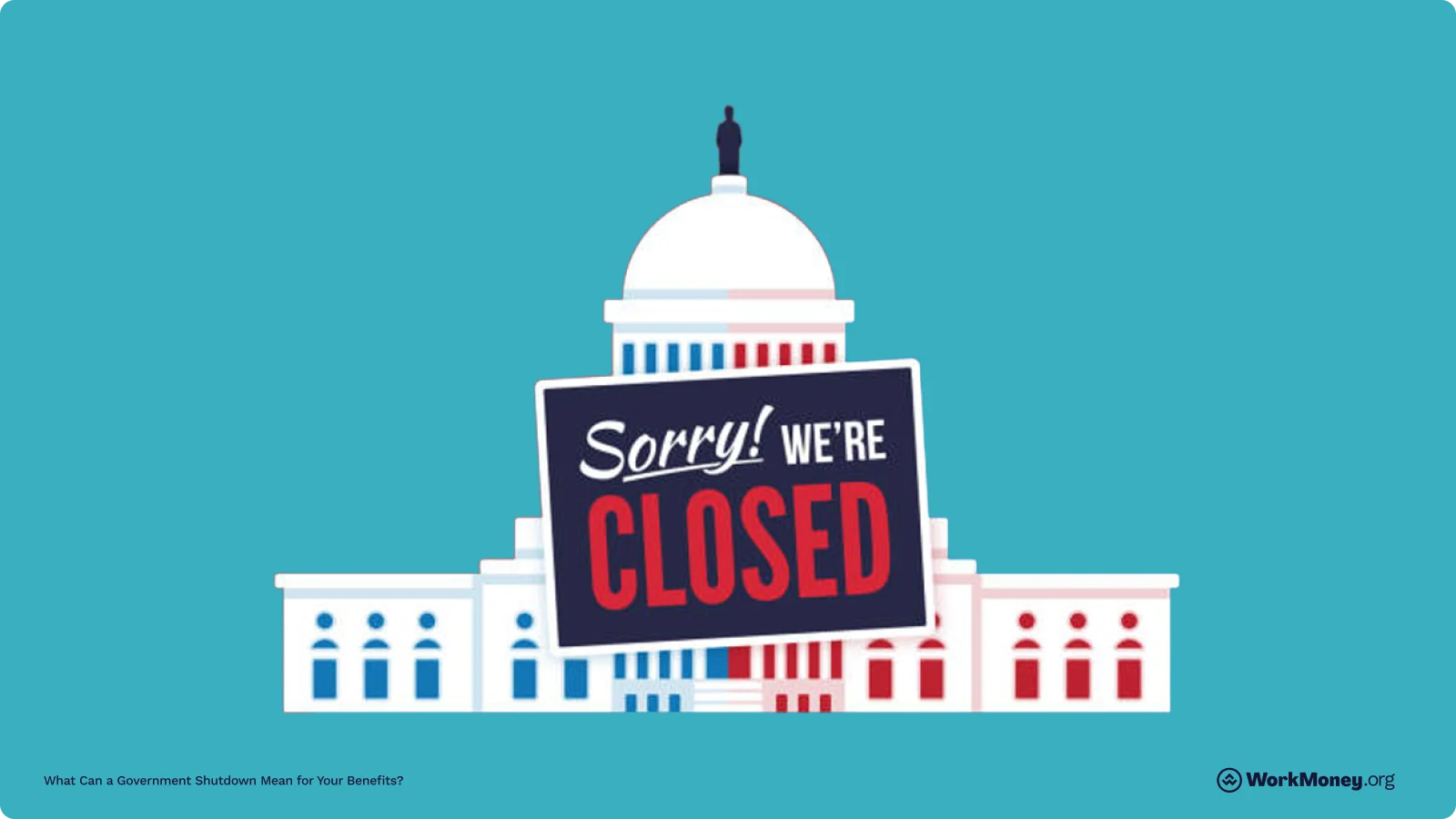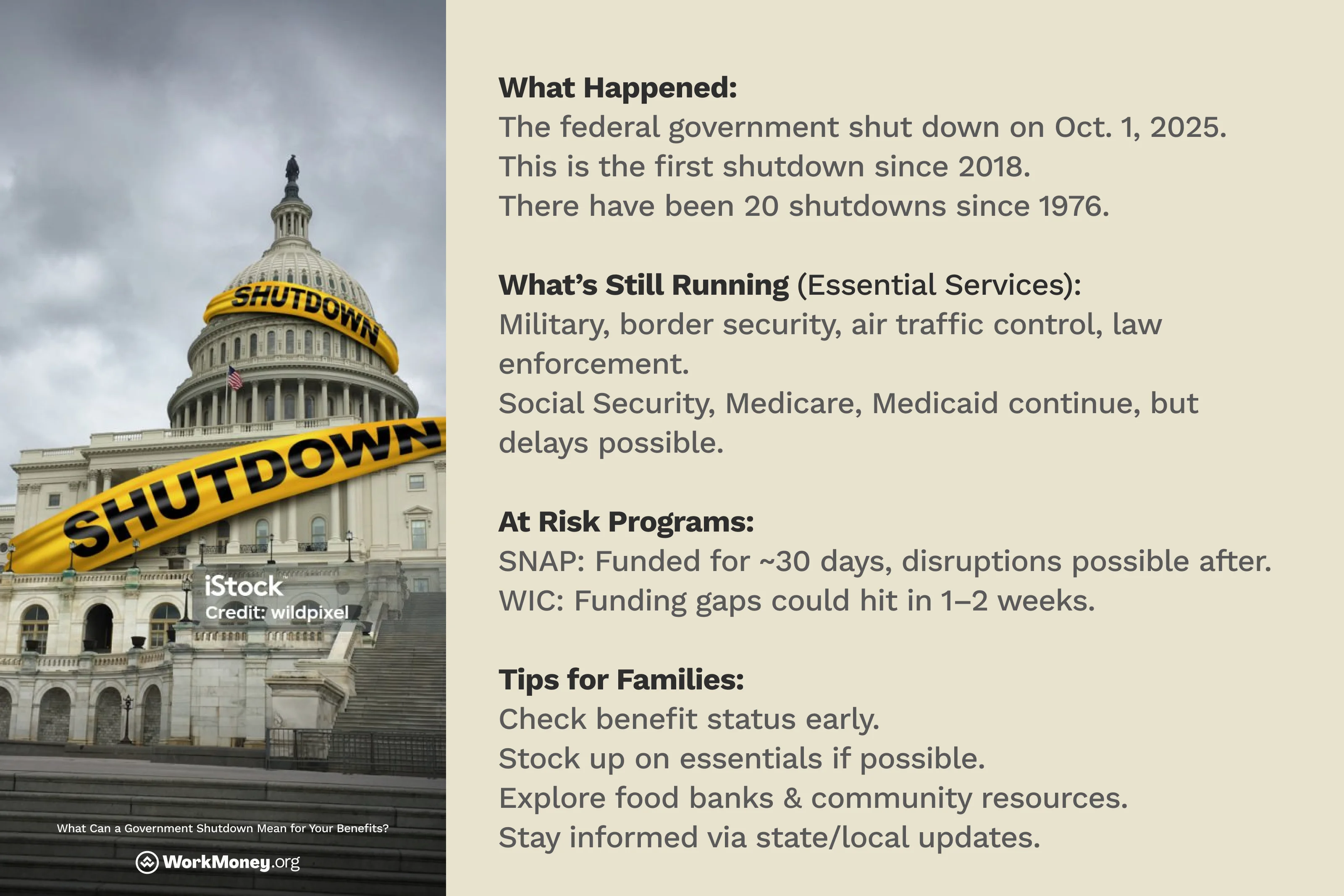What Can a Government Shutdown Mean for Your Benefits?
How WIC, SNAP and other programs are impacted

The federal government has officially shut down as of October 1st, 2025. If you’re currently receiving SNAP or WIC benefits, those may be in jeopardy in the coming days and weeks – depending on how long this shutdown goes on.
This isn’t the first time the federal government has shut down – and it likely won't be the last. There have been 20 shutdowns since 1976. This is the first shutdown since 2018, which lasted a record 35 days. While the majority of shutdowns are short-lived, there is no set timeline for how long this shutdown could last.
If you’re currently receiving benefits from the government, you may experience delays moving forward. The WorkMoney team researched how this has impacted benefits in the past, and what you can expect going forward.

Impact on Key Programs
During a government shutdown, many federal agencies and services are forced to scale back or close. Non-essential services like some national parks, museums, and certain regulatory offices—shut down or operate with skeleton staff.
Essential services tied to public safety, like the military, border protection, air traffic control, and law enforcement, continue to operate. Programs with mandatory funding, such as Social Security, Medicare, and Medicaid, generally continue to operate, although administrative help may be delayed.
However, SNAP and WIC become significant priorities as politicians and lawmakers recognize the importance of these benefits to millions. Here’s what you need to know about the current status of SNAP and WIC.
Tips for Families
If you’re receiving either SNAP or WIC benefits, there are several things you can do to ride out this shutdown:
Check your benefits status early. Log in to your state’s online portal or call your local office to confirm when your next payment will arrive.
Stock up on essentials if you can. If your benefits have already been loaded, consider buying shelf-stable goods, formula, and other essentials while funds are available.
Explore local resources. Food banks, food pantries, churches, and community organizations often step in during funding gaps to help families in need. Some states and local governments also provide emergency food assistance programs.
Stay informed. Keep an eye on official program websites, your local office updates, and trusted news alerts. These will be the fastest way to learn about any changes or temporary extensions to your benefits.
Final Thoughts
If you’re currently receiving benefits through either SNAP or WIC, the best thing you can do is stay up-to-date on the latest news from your state agency. Additionally, its best to have a plan in place if your benefits run dry, including reaching out to community organizations that can supplement the potential loss in benefits.
About the Author

Brett Holzhauer
Brett Holzhauer is a Certified Personal Finance Counselor (CPFC) who has reported for outlets like CNBC Select, Forbes Advisor, LendingTree, UpgradedPoints, MoneyGeek and more throughout his career. He is an alum of the Walter Cronkite School of Journalism at Arizona State. When he is not reporting, Brett is likely watching college football or traveling.

